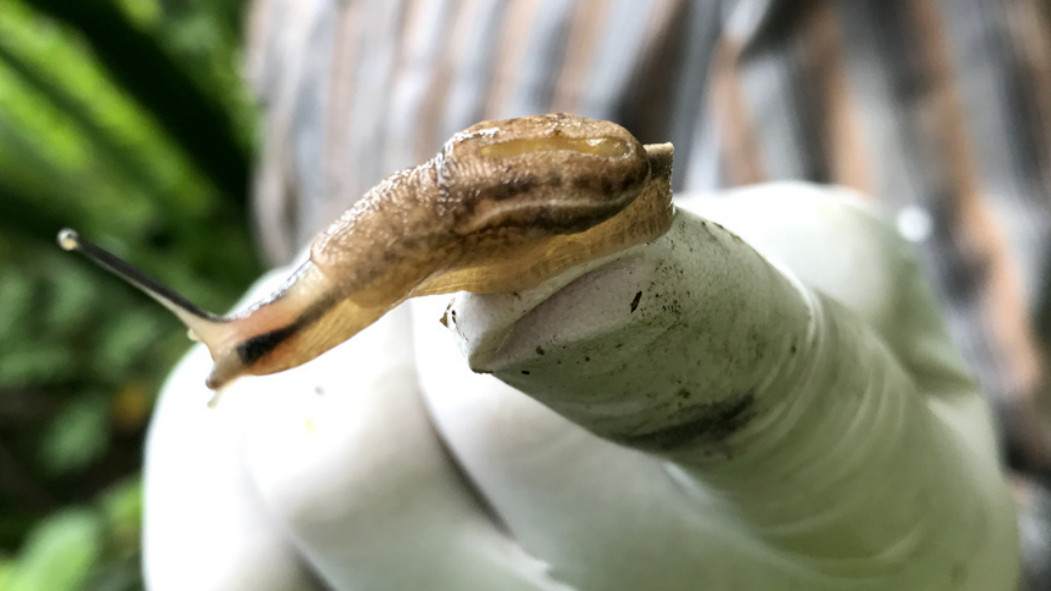(BIVN) – The second case of rat lungworm disease in the state of Hawaiʻi in 2019 has been confirmed in a resident of North Hawai‘i. Both confirmed cases of the disease, also known as angiostrongyliasis, have been contracted on Hawaiʻi Island.
The Hawaiʻi Department of Health issued this news release Thursday:
Health officials learned recently about the adult resident of North Hawai‘i, who became ill in January. Laboratory testing though DOH’s State Laboratories Division confirmed the individual’s infection in late February. The individual was hospitalized for a short time and has since recovered.
Disease investigators conducted a detailed investigation to learn more about possible sources of infection. The exact source of infection could not be identified, but investigators learned the individual had a home garden on their property. It is likely the individual accidentally consumed a slug or snail while eating produce from their garden.
“In Hawai‘i, we need to treat all slugs and snails as if they are infected with the parasite that causes rat lungworm disease, and this means washing all produce no matter where it comes from, whether it’s from the grocery store, the farmer’s market or grown in our own home gardens and yards,” said Health Director Bruce Anderson. “Washing all produce carefully and thoroughly using clean, running water is the most effective way to remove unwanted slugs or snails from fresh fruits and vegetables.”
A community meeting will be held in North Hawai‘i in late April, health officials say, to provide residents in the area with information about rat lungworm disease and how they can protect themselves.
The meeting is tentatively scheduled at the North Kohala Public Library for Monday, April 22, at 6 p.m.
The health department included this general information about the disease:
Angiostrongyliasis, commonly known as rat lungworm disease, is caused by a parasitic roundworm and can have debilitating effects on an infected person’s brain and spinal cord. In Hawai‘i, most people become ill by accidentally ingesting a snail or slug infected with the parasite Angiostrongylus cantonensis (A. cantonensis). Symptoms vary widely between cases, and the most common ones include severe headaches and neck stiffness. The most serious cases experience neurological problems, severe pain and long-term disability.


by Big Island Video News5:04 pm
on at
STORY SUMMARY
HAWAIʻI ISLAND - The individual is a resident of North Hawai‘i and is the second person from the Big Island to test positive for angiostrongyliasis so far this year.